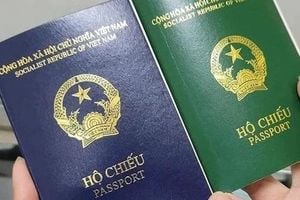The urgent need for effective African language policies is coming to the fore as countries grapple with the challenges of integrating indigenous languages within educational frameworks.
Recent discussions by experts have highlighted the significant struggles surrounding bilingual education, particularly evident through the perspectives of prominent figures like Mozambican linguist Armindo Ngunga. He argues for the necessity of granting equal status to Mozambican languages alongside Portuguese, voicing concerns about the declining quality of education due to language barriers. "The problem is the quality of education is declining... no matter how much someone teaches, no one will learn," Ngunga stated, emphasizing the importance of fostering communication within classrooms.
Since introducing bilingual education initiatives back in 2015, Mozambique has made some strides, but challenges remain, especially as 90% of children start school without proficiency in Portuguese. Ngunga insists, "We need to work seriously... so every Mozambican child has the right to learn to read and write in the language they learned to speak." This call for action echoes the sentiments of many educators and linguists concerning the urgency of language preservation efforts.
On the African continent, where over 2,000 languages are spoken, tech innovations are also stepping up to tackle linguistic accessibility. A prime example is the recent launch of EqualyzAI, set against the backdrop of International Mother Language Day. This startup aims to create AI solutions rooted deeply within local contexts, utilizing hyperlocal multimodal datasets and collaborating with native speakers to drive meaningful change.
Speaking at the launch, co-founder Dr. Olubayo Adekanmbi asserted, “Our mission is to... solve our unique challenges. This is not just about technology; it’s about empowerment and inclusion.” His words resonate within the broader narrative surrounding the necessity of linguistic diversity, illustrating the potential gains from AI innovations capable of speaking and processing various African languages.
Meanwhile, at Vaal University of Technology (VUT), the African Languages Development Unit (ALDU) is making substantial progress with the Department of Higher Education and Training (DHET). On February 19, 2025, DHET representatives visited VUT to evaluate the implementation of language policies. Mr. Jacob Thamaga of ALDU presented significant achievements, noting, "The ALDU has made significant strides... aiming to broaden access to education through multilingualism." The acknowledgment of their dedicated efforts marks not only institutional appreciation but highlights the concerted push toward inclusivity within higher education.
Reflecting on these developments, the DHET noted the challenges faced since the initial adoption of its language policy back in 2002. The introduction of the language framework in 2020 aimed to strengthen accountability and encourage the development of indigenous languages, which is now more pertinent than ever.
Yet, many obstacles still exist. Ngunga points out the dearth of qualified teachers willing to teach within bilingual frameworks, calling on the government and educational institutions to invest more decisively in training educators. "We have to train people so they can meet the demands of the education system," he asserts, pressing for governmental political will to support and expand bilingual educational efforts.
The progress observed at VUT is encouraging; their efforts include translating key institutional documents, developing glossaries, and offering language tutoring services. These initiatives exemplify the commitment to creating educational environments where every student can thrive, regardless of their native tongue. The positive feedback from DHET confirms the alignment of VUT’s language choices with student demographics—a promising sign for the future.
The collective efforts across various sectors confirm the urgent need for cohesive strategies to promote African languages within education. The intertwined fates of linguistic diversity and educational quality cannot be overstated; as evidenced through Ngunga's critique on the educational system, the reality remains stark: "How would he learn?"
By investing time and resources to implement effective language policies and educational programs, stakeholders can contribute to preserving Africa’s rich linguistic heritage. The road may be challenging, but the potential for transformative change is immense, offering hope for future generations to learn and thrive within their cultural contexts.



